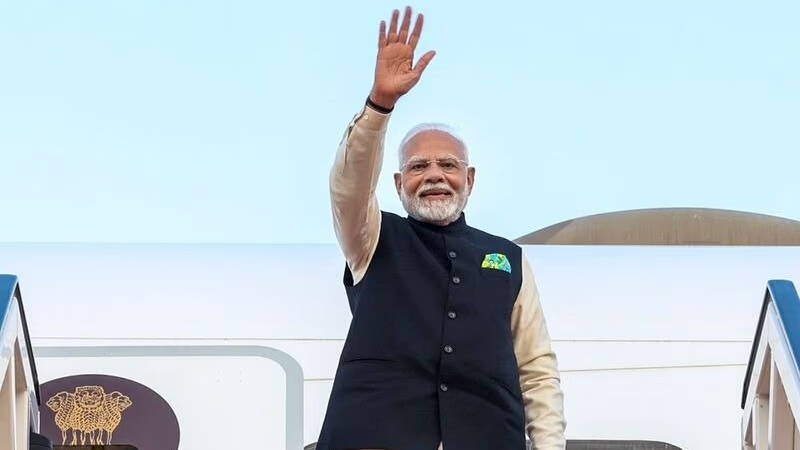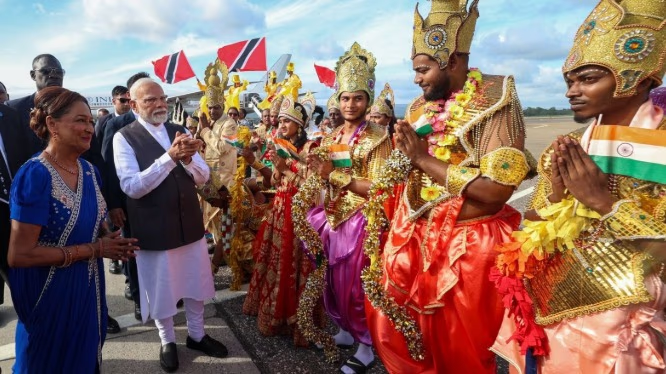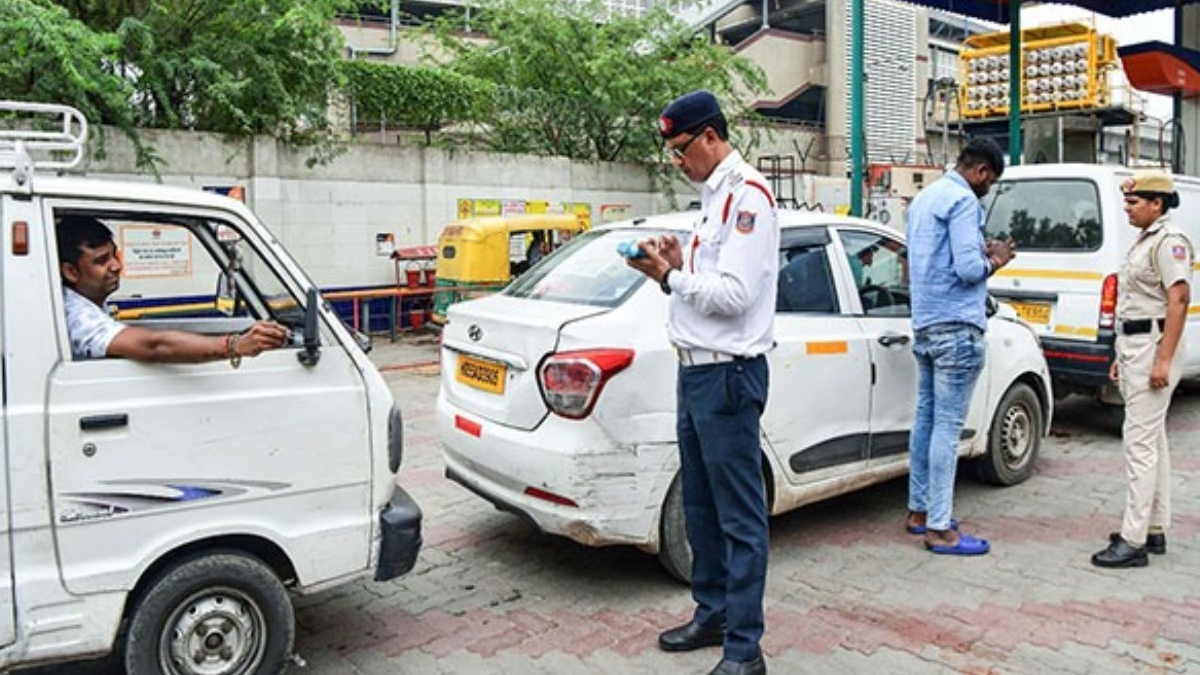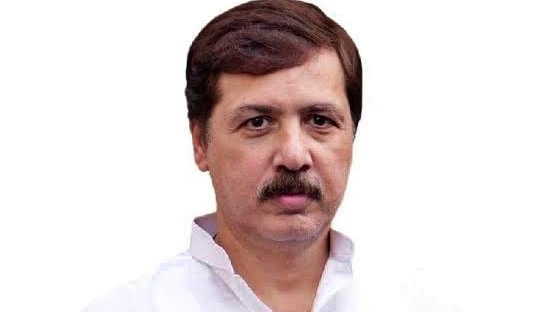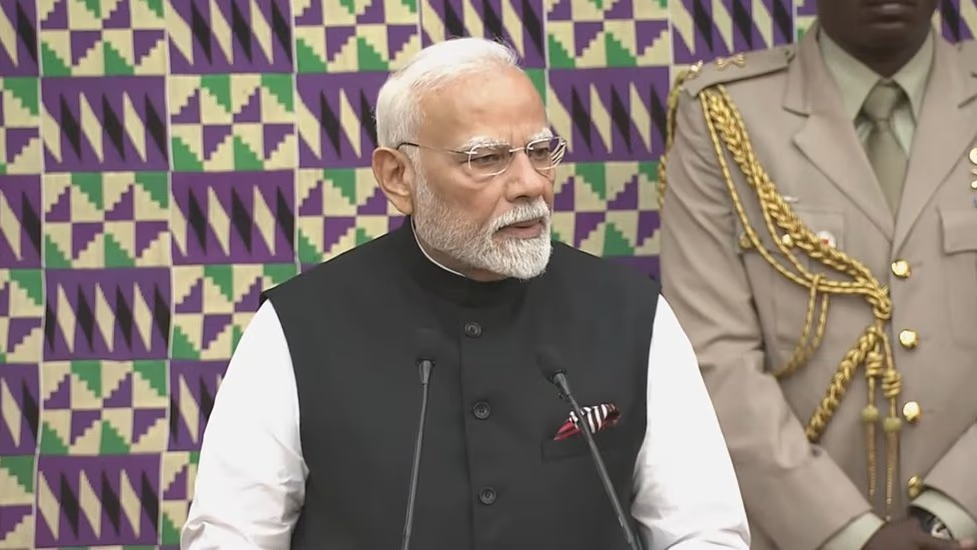Prime Minister Narendra Modi embarks on a pivotal journey from today until July 9, visiting five influential nations: Ghana, Trinidad and Tobago, Argentina, Brazil, and Namibia. This tour marks a historic outreach to some of these countries, underscoring India’s strategic international engagements after decades.
The visit emphasizes India's commitment to strengthening ties with the Global South, enhancing economic collaboration, and addressing shared challenges in climate change and technological advancement. During this time, PM Modi will conduct several bilateral meetings and participate in the 17th BRICS summit held in Brazil.
While meeting Ghanaian leaders, the focus will be on agriculture, vaccine development, defense cooperation, key minerals, and digital infrastructure. On July 3, PM Modi will address Ghana's Parliament, discussing shared democratic values and India's contribution to Ghana's growth.
In Ghana, PM Modi will connect with the Indian diaspora, fostering community ties. Bilateral trade, primarily in gold imports, amounts to $3 billion, while Indian investments reach $2 billion. As Ghana undergoes economic restructuring under IMF terms, both nations aim to enhance cooperation. Expected agreements include deals in traditional medicine and cultural exchange, building on India’s historical support for Ghana’s independence in 1957.
PM Modi will hold high-level talks with President Kangal and Prime Minister Persad-Bissessar, focusing on pharmaceuticals, renewable energy, digital infrastructure, and agriculture. He will address the joint session of Trinidad's Parliament, emphasizing shared democratic values. The visit aims to expand India's development partnership with key players like CARICOM and SIDS and explore new pathways in sports, education, and cultural cooperation, with anticipated bilateral agreements.
Bilateral discussions will explore trade, defense, agriculture, mining, oil and gas, renewable energy, and digital innovation. Aimed at forging new partnerships, especially in energy security and rare earth minerals, both countries will explore telemedicine, defense manufacturing, and space technology cooperation. Argentina seeks to leverage India’s expertise to support its development goals, offering new avenues for collaboration and establishing India as a reliable partner in Latin America.
Energy security and rare earth minerals partnerships are on the agenda. Both leaders will explore telemedicine, defense manufacturing, and space technology cooperation. Argentina aims to leverage India's expertise for growth support. This visit strengthens India’s trusted partner role in Latin America.
During his state visit to Brasília on July 8, Modi will hold bilateral talks with President Lula to advance the India-Brazil strategic partnership established in 2006, focusing on trade, defense, renewable energy, mining, crucial minerals, space, healthcare, and digital infrastructure.
With $12.2 billion bilateral trade, Brazil is India’s largest trading partner in Latin America, focusing on expanding trade agreements. This visit solidifies India’s leadership role in BRICS, especially as India prepares to chair in 2026.
The mission aims to deepen India-Namibia ties, rooted in India’s historic support for Namibia’s independence struggle in the 1940s, with focus areas including $600 million bilateral trade and $800 million Indian investments, particularly in zinc and diamond processing.
Namibia's cheetahs successfully relocating to India’s Kuno National Park symbolizes growing collaboration. Talks will encompass agriculture, pharmaceuticals, uranium, copper, and lithium mining, alongside an essential UPI payment interface deal between Namibia's Central Bank and NPCI.
Acting in Solidarity with the Global South
PM Modi’s tour emphasizes India’s leadership in addressing the Global South's aspirations from economic growth to climate action and technological innovation. By connecting with Africa, Caribbean, and Latin America, India strengthens its bridge role among developing nations and on global platforms like BRICS and the UN.
